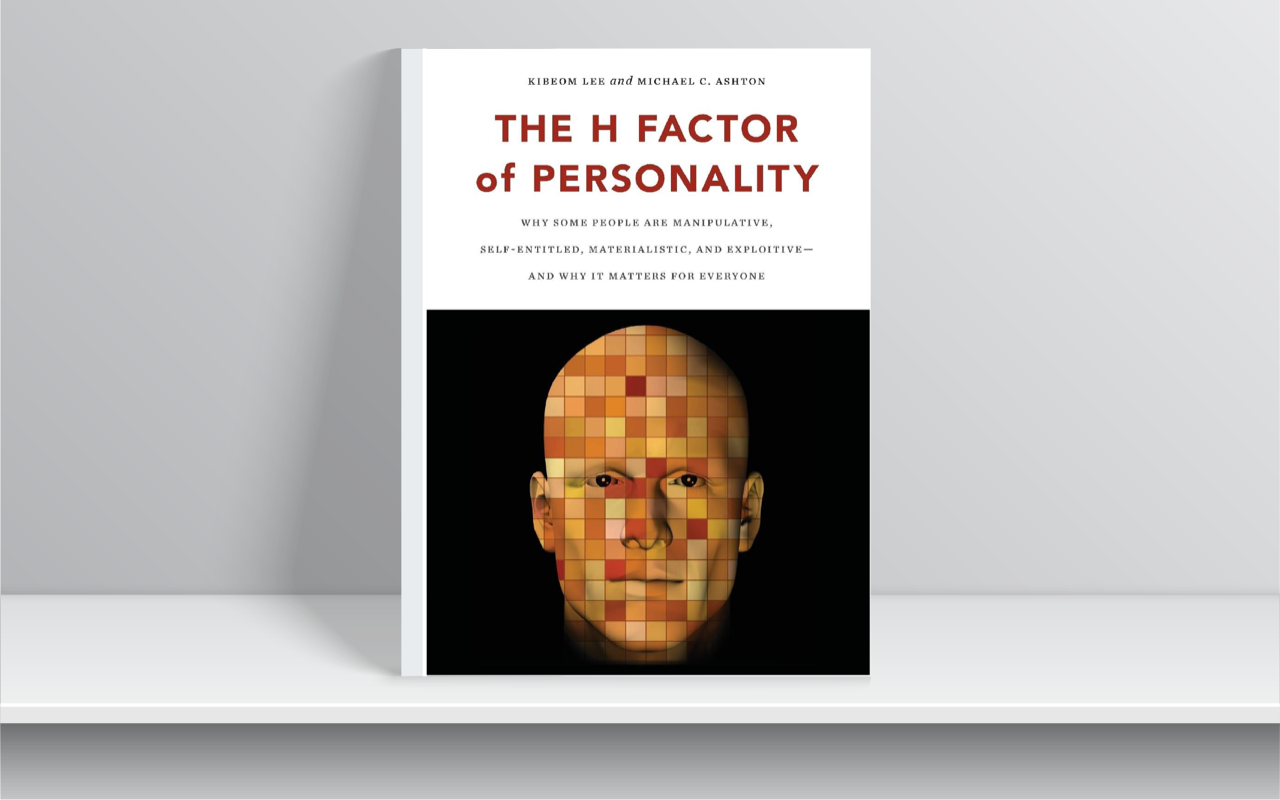For decades, the popular Big Five personality theory has defined human nature according to five factors. But there’s a new factor on the block, and it can make a big difference.
With 7.8 billion people in the world, you wouldn’t have to look far to find a wide range of different personalities. But while we are all unique, many experts have studied human behaviour and distilled it down to common traits that can be mapped and categorised.
The Big Five or OCEAN model is a popular personality-typing system that examines five key aspects of a person’s personality, namely: Openness, Conscientiousness, Extraversion, Agreeableness and Neuroticism. Knowing roughly where a person sits on each spectrum can give you a fairly accurate overview of their character, which is useful if you’re about to invest time, energy or money in them.
Devised in the ’70s, the Big Five theory of personality held its own for three decades, until Kibeon Lee and Michael Ashton – two leading figures in the science of personality – started trawling through hundreds of student profiles based on the Big Five. Kim and Lee noticed a correlation between people who scored low on questions relating to ethics and self-aggrandisement and the propensity for antisocial (at best) and malevolent (at worst) behaviour. This was a groundbreaking observation because it isn’t intuitively obvious that traits of honesty and humility go hand in hand.
Based on their research, the pair introduced a sixth personality spectrum in 2000: the “H” factor, for “Honesty-Humility”. Thus, the OCEAN acronym evolved into HEXACO, which stands for Honesty-Humility, Emotionality (formerly neuroticism), eXtraversion, Agreeableness, Conscientiousness and Openness.
So what?
The H-Factor is especially revealing when it comes to making sense of some of the most important elements of life: your approach to money, power and sex; your inclination to commit crimes or obey the law; your attitudes about society, politics and religion; and even your choice of friends and spouse.
Bluntly put: according to the model, people who have high levels of H are sincere and modest, while people who have low levels are often deceitful and pretentious. As Kim and Lee explain, people with very high scores on the Honesty-Humility scale generally avoid manipulating others for personal gain, feel little temptation to break the rules, are uninterested in lavish wealth and luxuries, and feel no special entitlement to elevated social status. Conversely, people with very low scores will be more likely to flatter others to get what they want, are more inclined to break rules for personal profit, are motivated by material gain, and feel a strong sense of self-importance.
Having said that, there are certain situations where traits such as these can benefit not just the person displaying them, but also society at large. It all boils down to balance: the antagonistic elements of having a low H-Factor could be balanced by the altruistic effects of high levels of Agreeableness, Emotionality and Conscientiousness, for example, which combine to keep the more anti-social effects of a low H-Factor in check. Conversely, it’s a fair bet to say that choosing a spouse, employee or business partner with a trifecta of a low H function, low Agreeability and low Conscientiousness, is probably not going to end well, especially if you or your organisation lean toward the altruistic side of the equation. In other words, you cannot examine any of the six factors in isolation.
It seems that in personality typing – as in life – the whole can be greater than the sum of its parts. As Kim and Lee explain in their book, The H Factor of Personality: Why Some people are Manipulative, Self-Entitled, Materialistic, and Exploitative – And Why It Matters to Everyone, it’s the combination of these traits and where people sit on the ‘altruistic’ vs ‘antagonistic’ spectrum of each dimension that makes each person unique.
The authors are at pains to point at that there are pros and cons to scoring particularly high or low on each of the spectra. When it comes to looking out for number one, a low H factor will make you less likely to have any qualms about taking advantage of people or situations to get ahead – think of the operator who can navigate just about any situation and come out on top, even if it’s at the expense of others. So, while a low H-Factor score makes you more likely to break rules and flout conventions – characteristics that can make you nimbler in the face of change – it is also a predictor of unethical behaviour, which can range from a mild tendency to push the envelope to full-blown criminality.
Conversely, people with high levels of H tend to have strong human connections and, if they are fortunate enough to mix that with high Agreeableness and Openness, chances are they have a solid, reliable network to support them through life’s many moments of change. They are also more likely to be satisfied with their lives and their relationships, and less likely to pursue status symbols and power for the sake of it.
Interestingly, the real out-of-the-box thinking so highly prized by organisations and entrepreneurs is less about the H-Factor, and more a function of high levels of openness (indicative of curiosity and a willingness to consider new ways of doing things) and conscientiousness (persistence and hard work), plus a dose of agreeableness to influence people to support or back your idea.
So, for anyone looking to be better at change, the lesson is clear: we’d be better served by cultivating higher levels of openness, agreeableness and conscientiousness while keeping our H-Factors in check. And the good news is, you can adjust your personality and slide along any or all of the six HEXACO spectra. So why not get started right away? Click here to find out how you currently score – because understanding yourself is the first step to effecting lasting positive change.

Leave a Reply